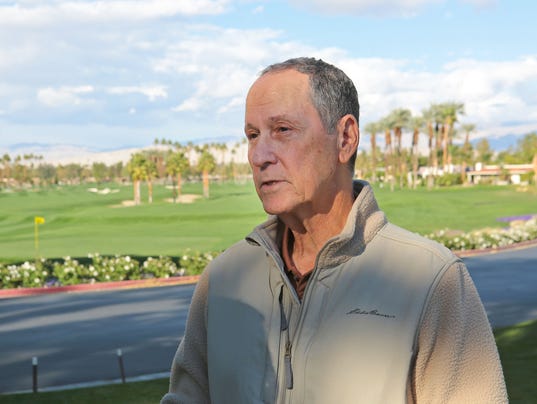Shocker: Palm Springs Area Golf Club's Facing Tensions
/Any number of reasons for the coming Palm Springs/Palm Desert/Rancho Mirage/Indian Wells/La Quinta golf crisis could have been guessed...
--Too many mediocre courses built carelessly over gloriously sandy terrain
--Not enough baby boomers ready to retire to a golf community
--Tired concepts for what a club, clubhouse and golf community should be
--Not enough golfers to buy homes along the courses, meaning non-golfers will have to help pay bills they wont' like maintaining to...
--Defray costs to maintain an unsustainable aesthetic
The list goes on and on, but the greater Palm Springs area and its 100 or so courses face major issues in the coming years if clubs do not reinvent themselves and their designs that are lined by too many homes and not enough people willing to pay for the upkeep of the grass they look out upon. As John Strege notes at GolfDigest.com after reading Rosalie Murphy's Desert Sun feature on HOA fights with courses,
As John Strege notes at GolfDigest.com after reading Rosalie Murphy's Desert Sun feature on HOA fights with courses,
It already is a concern for many of the golf course communities there, but is it destined to expand into a full-blown crisis in the desert?
Murphy writes in her story looking at various spats, including a Club At Morningside lawsuit breaking out over who is going to pay for all of those rye grass overseeds.
Zien, president of the HOA board, describes the division between the club and HOA as an “inherent flaw in the design.” The two bodies are symbiotic, he believes: Homeowners benefit from the club whether or not they play golf, because it surrounds their homes. And the club needs homeowners’ financial support to maintain itself.
Schneider, Asher and 27 other plaintiffs say that’s not what they signed up for. They chose not to join the club, and requiring them to support a club they don’t use — regardless of its impact on their property values — nullifies that decision. Hal Asher, who wants to take his house off the market, said he won't buy into an HOA-governed community again.
“I made a decision that I didn’t want to belong (to the club),” said Jay Cooper, a plaintiff in the suit. “I bought the house with that assumption, and I still have that assumption. I don’t want to be railroaded.”











